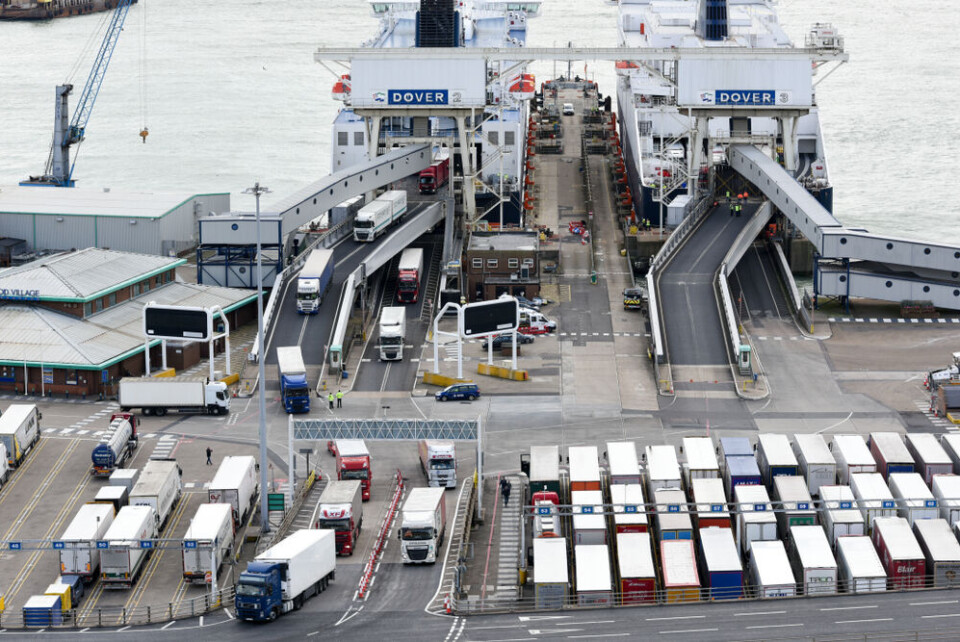-
QR code to replace paper instructions for 100 medicines in France in new trial
Paracetamol and cholesterol medication to be included in scheme that launches this autumn
-
Online ‘anti-waste’ supermarket offers deals on everyday items in France - we test it
Discounts of 10% to 50% available on brand products
-
The curious case of Good Friday: Why only some parts of France have the day off
Three French departments benefit from two extra public holidays
UK again delays launch of its Brexit controls for goods coming from EU
Food-import restrictions have been put back for fifth time to give businesses more time to adapt to new measures

Post-Brexit food import restrictions have been delayed for a fifth time and will not start to come into force until January 2024.
The delay was widely anticipated, with The Connexion first reporting on it a month ago.
Read more Brexit: What will France-to-UK food checks mean… if they ever come in?
On Monday August 29 the UK government said in a statement:
“Having listened to the views of industry, the government has agreed to a delay of three months for the introduction of remaining sanitary and phytosanitary controls, as well as full customs controls for non-qualifying Northern Ireland goods [the latter refers to goods coming into the rest of the UK from the EU via Northern Ireland].”
This new three-month delay will be as of October 31, which was intended as the start date of the new food import restrictions. The restrictions will now begin on January 31, 2024.
The EU implemented its in-bound restrictions in January 2021.
Why is the UK delaying again?
Since Brexit, the UK has repeatedly delayed the full application of food import restrictions, which include animal and plant health checks and certificates.
Previous delays were largely due to concerns that the increased costs of importing food would be passed onto consumers, already faced with a cost-of-living crisis.
In 2022, then Minister for Brexit Opportunities Jacob Rees-Mogg told ITV that applying food import restrictions would be “an act of self-harm.”
This time, the delay is said to be due to the complex rollout of a new data-driven border system.
What is the new system?
In April 2023, the government released its 2025 Border Strategy paper presenting the current plan to implement food import restrictions. This plan is called the Border Target Operating Model.
The model promises to use data and technology to create “a world-class border system” that should save £520m each year compared with a previous (unimplemented) model from 2022.
Critics say it requires too much, too soon from importers, with thousands of food businesses across Europe having to comply by implementing new software, training staff and changing procedures.
The Cold Chain Federation, which represents UK food transport businesses, has claimed that the plan will “fuel shortages and price inflation” and stated that it will “solve none of the real risks facing our post-Brexit food supply chains”.
It said, for example, that ‘groupage’, where one lorry carries many small consignments of goods from different companies, is no longer going to be workable under the new systems, but it is relied on by many food retailers and restaurants.
“Overall, exporting products such as meat and dairy from the EU into the UK will be more expensive, slower and more complicated.”
However, the UK government stands by its proposed model.
“Our Border Target Operating Model will ensure more efficient trading for businesses, protect against biosecurity threats and further crack down on illegal imports such as firearms and drugs,” said Baroness Neville-Rolfe, a Cabinet Office minister.
“Once fully implemented, these important post-Brexit measures will, I believe, bring considerable benefits to the UK economy and to UK trade, and the government stands ready to support businesses through this transition.”
What checks are coming in 2024?
January 30 – Businesses importing fresh or frozen meat, dairy, plants and plant-based products will be required to provide an export health certificate signed by a vet or plant health expert alongside the consignment of goods entering the UK.
April 30 – Physical checks will be carried out on animal products, plants and plant products, based on an assessment of likely risk. All consignments of such items, including fresh food and animal feed, that are potentially eligible for health checks will have a ‘common user charge’ levied on them of around £20-43, whether or not they are actually selected for inspection.
31 October – Safety and security declarations for EU imports come into force
Related Articles
Recap of post-Brexit rules for bringing items into France from the UK
Brexit: What will France-to-UK food checks mean… if they ever come in?
























